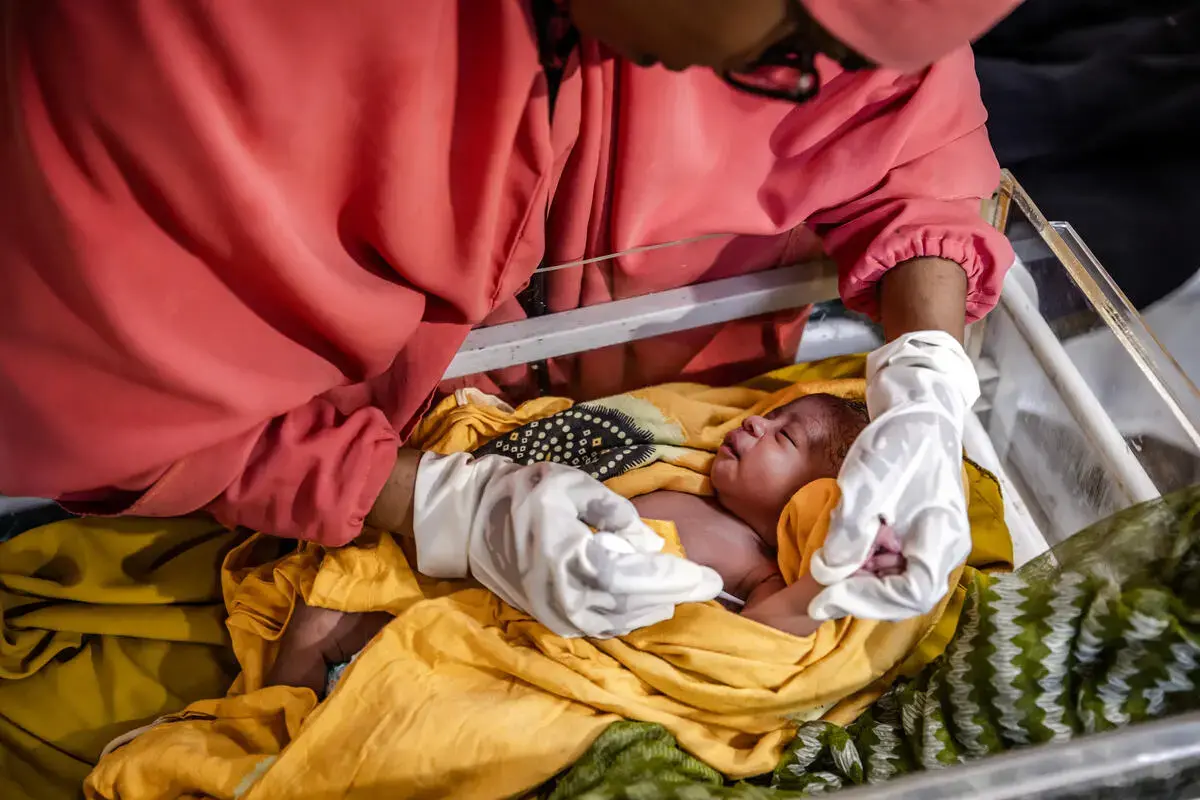Midwives save lives. Well-trained midwives working in fully functional environments could help avert roughly two thirds of all maternal and newborn deaths, according to the most recent State of the World’s Midwifery report. They could also deliver 90 per cent of all essential sexual, reproductive, maternal and newborn health services. Yet, because they are both underutilized and in short supply, they account for only 10 per cent of those currently providing these services.
Since 2008, UNFPA has worked with partners, governments and policymakers to help build a competent, well-trained and well-supported midwifery workforce in low-resource settings. UNFPA focuses on four key areas: strengthening competency-based midwifery training; developing strong regulatory mechanisms to ensure quality services; raising the voices of midwives by establishing and strengthening midwifery associations; and advocating for increased investments in midwifery services. UNFPA also works to create a supportive environment for midwives by advocating for adequate workforce policies for midwives.
Why are midwives needed?
Around the world, in most regions, rates of maternal deaths have either stagnated or worsened. Every year, 287,000 women globally lose their lives giving birth, 2.4 million newborns die and an additional 2.2 million are stillborn. Many lose their lives to complications and illnesses that could have been prevented with proper antenatal, delivery and post-natal care – services provided by midwives.
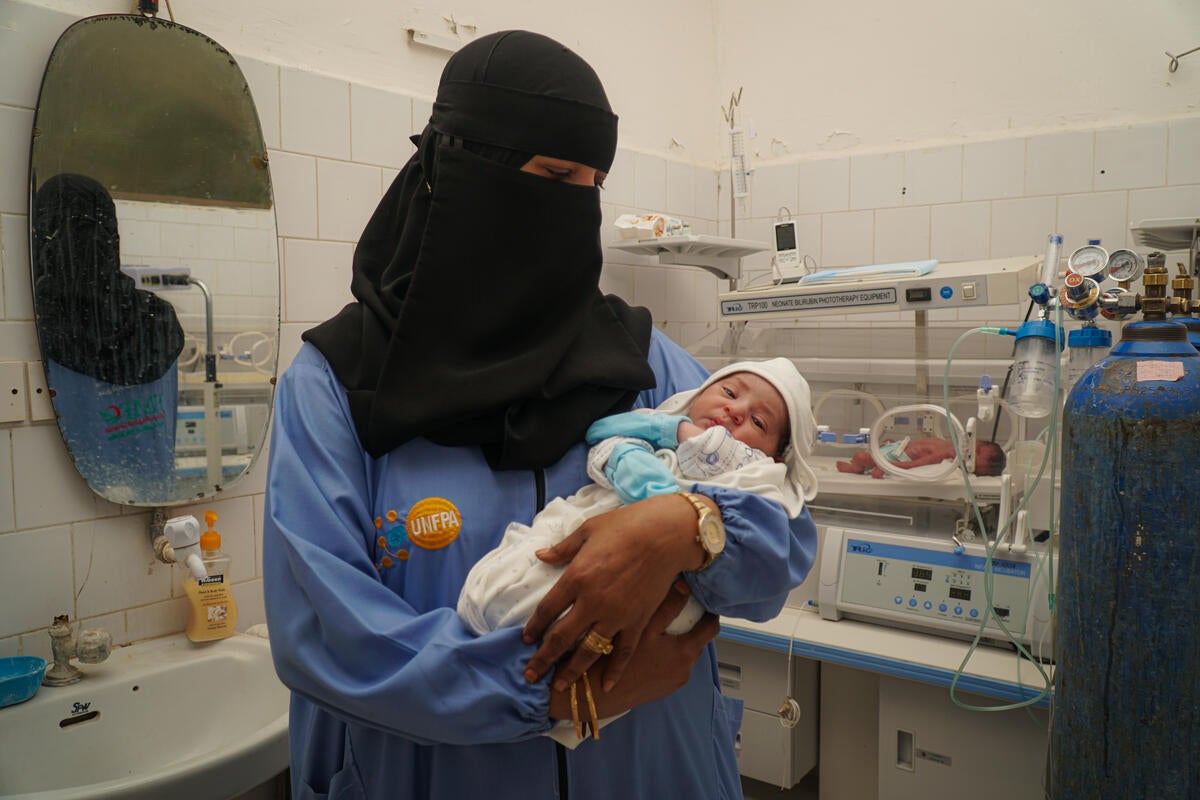
The Arab region is no different. Many countries in the Arab region have already met the Sustainable Development Goals’ target of achieving below 70 maternal deaths per 100,000 live births. Yet the average in the region was still more than double the target in 2017, with 151 deaths per 100,000 live births. This was largely driven by Djibouti, Somalia and Sudan which have maternal mortality rates of over 200 deaths per 100,000.
Between 2000 and 2017, the Arab region achieved a 42% reduction in its maternal mortality rate. This is slightly higher than the global average of a 38% reduction. Most countries made significant progress, most notably Morocco with a 63% reduction, Palestine (61%), Sudan (56%), Djibouti (51%), and the United Arab Emirates (50%). However, six countries made little progress or recorded an increase in their maternal mortality rates: Iraq, Kuwait, Lebanon, Libya, Oman and Syria.
Sustainable Development Goal 3 on health and well being includes a target to reduce the global neonatal mortality rate to no more than 12 neonatal deaths per 1000 live births. In 2019, the average for the Arab region was 17. All high-income countries and several low- and middle-income countries recorded a neonatal mortality rate of below 12 in 2019. However, four countries had rates of over 25: Djibouti, Somalia, Sudan and Yemen.
The World Health Organization advocates for “skilled care at every birth” by an accredited health professional, such as a midwife, doctor or nurse who has been trained to manage uncomplicated pregnancies, deliveries and the immediate postnatal period. Skilled birth attendants also must be able to identify complications and secure timely emergency assistance. Midwives provide all these services, and more.
What midwives do
Midwives and people with midwifery skills are the main caregivers for women and their newborns during pregnancy, labour, childbirth and in the post-delivery period. Yet they do not just deliver babies. Well-trained midwives can provide comprehensive sexual and reproductive health information and services, and play a critical role in promoting health within their communities. As members of their community, they can ensure culturally sensitive care that is more likely to have a lasting impact.
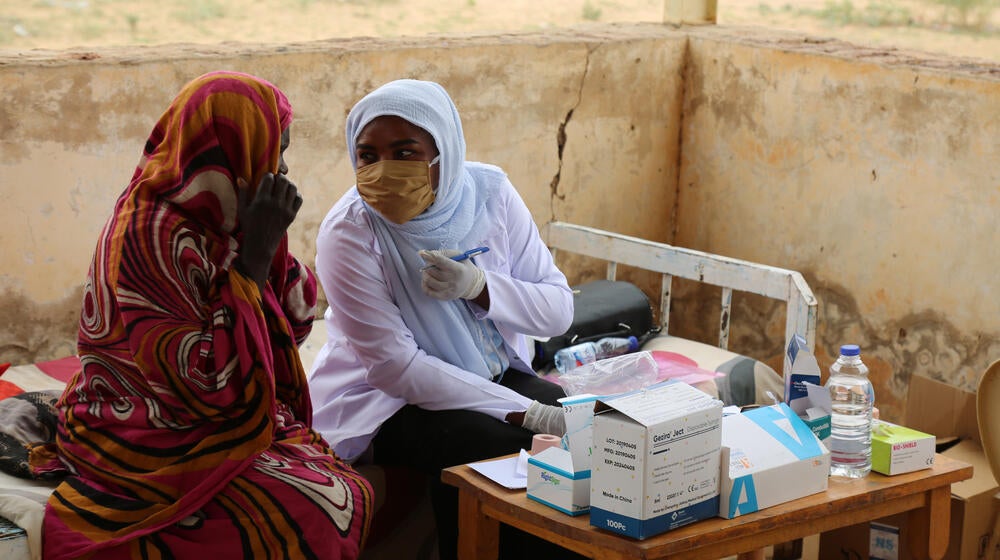
Midwives also provide family planning counselling and services, and perform breast and cervical cancer screenings. If authorized by their countries, they can provide basic emergency obstetric care, and in humanitarian crises, midwives can help implement the Minimum Initial Services Package for reproductive health care services.
Midwives also do much to advance women’s and girls’ rights. By providing information and counselling, they can help prevent female genital mutilation; offer support and assistance to survivors of gender-based violence; and provide reproductive health services to adolescents, who are often denied access to these services at great cost to their health and rights.
The midwife shortage
Midwives, when properly trained and supported, offer one of the most cost-effective and culturally sensitive paths to achieving universal health care. Yet midwives are in short supply in many countries, and they often lack the skills and supportive environment to perform their jobs well. In fact, the world is short of 900,000 midwives, and while progress is being made, the Arab region faces a projected shortfall of 60,000 midwives by 2030. It is estimated that the Arab region has only 1.9 midwives per 10,000 population. This is far lower than the global average of 4.4. The worst shortages are found in Algeria, Egypt, Iraq, Morocco, Somalia and Sudan.
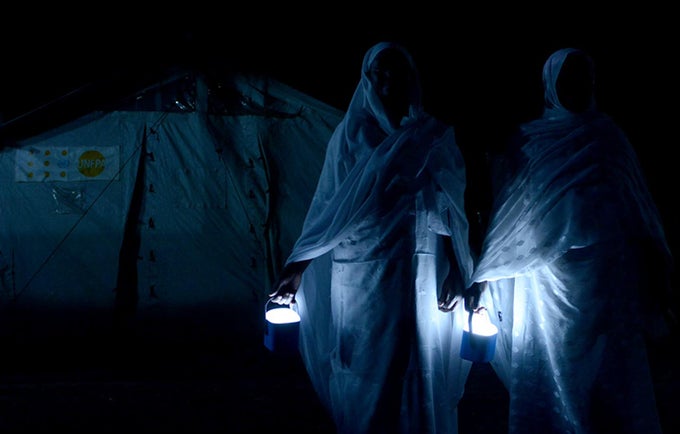
There are many challenges to increasing the availability of midwifery services. Despite the enormous responsibilities they bear, midwives – who are overwhelmingly women – frequently endure poor pay, low status and a lack of support. Gender biases also play a role in the problems midwives experience.
By closing the deficit in the number of midwives, we could prevent two thirds of maternal and newborn deaths, saving more than 4.3 million lives a year by 2035.By closing the deficit in the number of midwives, we could prevent two thirds of all maternal and newborn deaths, saving more than 4.3 million lives a year by 2035. In the Arab region, this translates to 300,000 more lives saved every year.
What is UNFPA doing?
Together with its partners, UNFPA works to scale up quality midwifery education, policies and services, in addition to strengthening midwifery institutions, associations and regulations. UNFPA’s support for midwifery now spans some 125 countries, including the countries with the highest rates of maternal mortality, some of those in the Arab region that receive targeted support through the Maternal Health Thematic Fund include Somalia, Sudan and Yemen.
UNFPA helped train more than 105,000 midwives between 2009 and 2018, while also providing books, equipment and training materials to more than 650 midwifery schools; training more than 8,500 midwifery tutors; and supporting more than 250 national and sub-national midwifery associations and their branches. UNFPA also works closely with national governments to ensure that midwifery is a well-regulated, autonomous profession with midwives enjoying a clear title and properly defined scope of practice. Many countries now follow a competency-based midwifery curriculum that is aligned to global standards. In addition, UNFPA has been supporting higher education programmes for midwives. UNFPA also focuses on deploying midwives following the completion of their education and training.
Today, support for midwifery services is growing. Midwifery is strongly emphasized in the UN Secretary-General’s Global Strategy for Women’s, Children’s and Adolescent’s Health, and an increasing number of governments have committed to investing in midwifery care. Each year, UNFPA works with ministries of health and national midwifery associations to celebrate the International Day of the Midwife on 5 May, highlighting the importance of midwives everywhere.
In partnership with the League of Arab States and the World Health Organization the UNFPA Arab States Regional Office developed a regional strategic framework for nursing and midwifery 2022-2030. The framework was also endorsed through the Arab Council of Health Ministers.
The State of the World’s Midwifery
In 2011, UNFPA and 30 partners published the first-ever State of the World’s Midwifery report, with data from 58 developing countries. The report called for bold initiatives by governments, regulatory bodies, training institutions and others to scale up investments in midwifery services. The second report was published in June 2014, offering data from 73 low- and middle- income countries, and highlighting the acute shortage of midwives in the places where the needs are greatest. In May 2021, UNFPA and partners published the third iteration of the State of the World’s Midwifery report, with a number of new findings, including the current lack of 900,000 midwives globally.
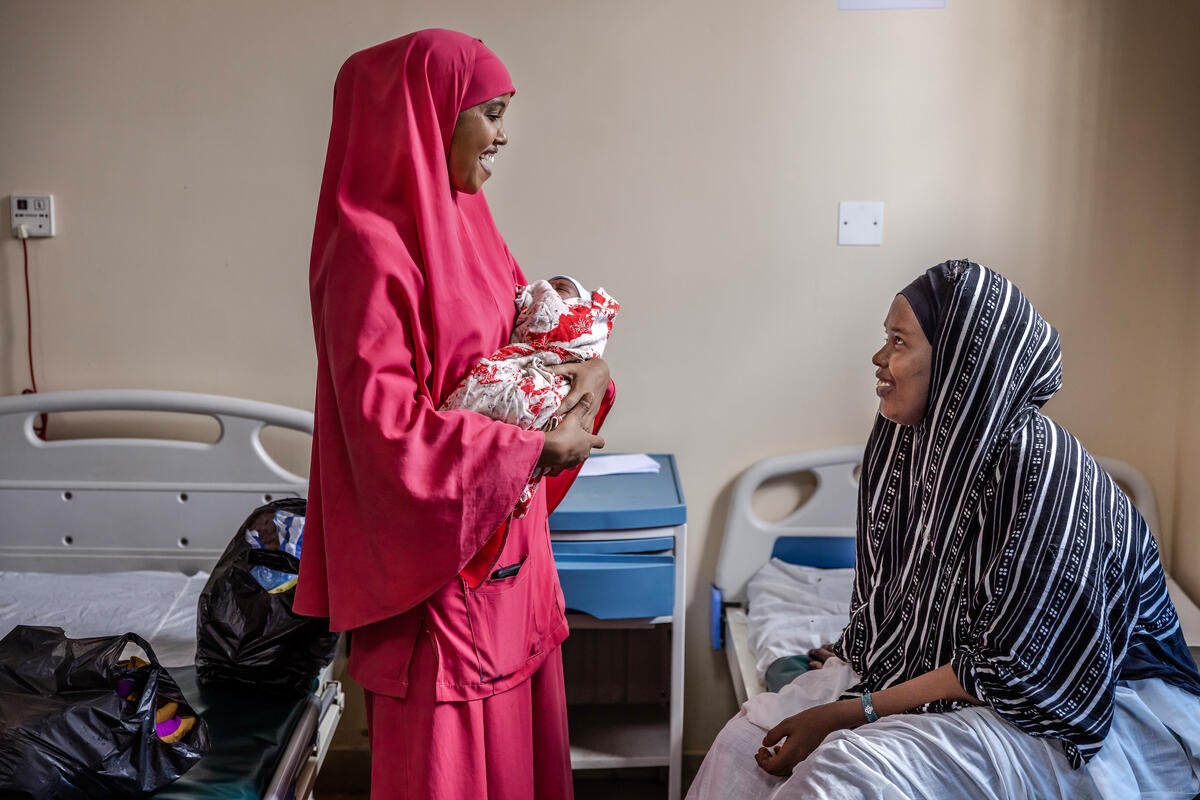
UNFPA in the Arab region built on the global reports by issuing regional reports in 2015 and 2021 to analyze the State of the Midwifery Workforce in the Arab Region.
Updated 25 April 2024

